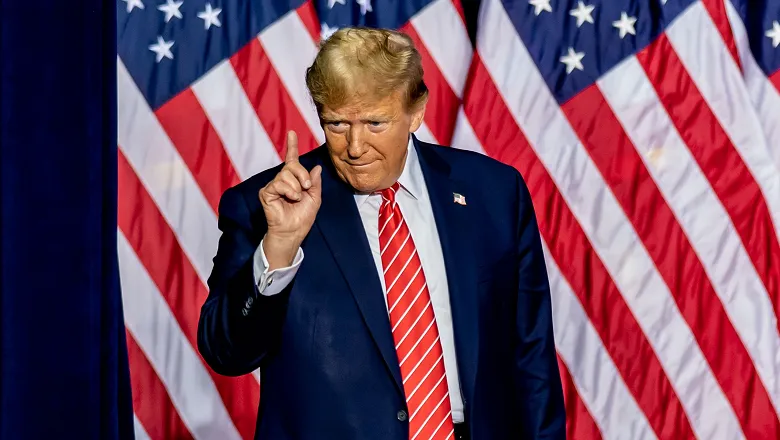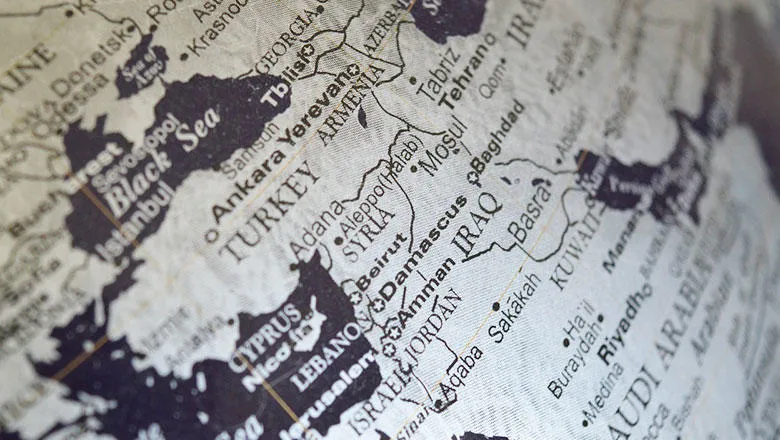
Dr Andreas Krieg
Senior Lecturer School of Security Studies
- Fellow at the Institute of Middle Eastern Studies
Research interests
- Conflict
- Security
Biography
Dr Andreas Krieg is a senior lecturer at the School of Security Studies at King’s College London, Royal College of Defence Studies and fellow at the Institute of Middle Eastern Studies. He has spent more than ten years living, studying and working across the MENA region. Andreas was able to complement his years in the Levant, i.e. Lebanon, Syria, Israel and Palestine, with four years in Qatar where he was involved in delivering a strategic contract between the State of Qatar, the UK Ministry of Defence and King’s College London.
In his research Andreas has focused on a variety of different subjects relating to the academic discipline of Security Studies in the geographic context of the MENA region. In particular, Andreas looks at violent non-state actors in the MENA region and their competition with state authority to provide communal resilience. In so doing, he has looked at assemblages between state and non-state actors across North Africa and the Levant in his work on surrogate warfare, and at the nexus between security provision and socio-politics in the Arab world in his work on the Arab Spring. From his research on the Gulf Divide, sprung the idea of his current project looking at the internal and external weaponization of narratives in the Middle East, which has not only distorted civil-societal discourse in the region but also the academic debate on where the region is going.
Click here to view Dr Andreas Krieg's website.
Research Interests
-
Security Sector Reform in the Middle East
-
Regime Resilience in MENA
-
Changing Security Discourse in the Arab world
-
Violent non-state actors in MENA
-
Gulf Security
In his research Dr Andreas Krieg has focused on a variety of different subjects relating to the academic discipline of Security Studies. During his graduate studies Andreas’ research revolved around Just War theory and conflict studies with a particular focus on the Middle East and North Africa (MENA) region. During his doctoral studies and beyond Andreas has focused on the changing nature of civil-security sector relations amid a growing commercialization of security, and its impact on security provision in the 21st century.
More recently, Andreas has explored the nexus between security and socio-politics in the Middle East after the Arab Spring. He has just completed a monograph on surrogate warfare analyzing new security assemblages between state and non-state actors in 21st century security provision. In particular, this monograph is a first attempt to conceptualize the wide-ranging externalization of the burden of warfare from state to non-state actors in recent decades.
Recent Publications
-
Krieg, A. (2017). Socio-Political Order & Security in the Arab World. New York: Palgrave Macmillan.
-
Krieg, A. (2019). Surrogate Warfare: The Transformation of War in the 21st Century. Washington, DC: Georgetown UP.
-
Krieg, A. (2019). Divided Gulf: The Anatomy of a Crisis. New York: Palgrave Macmillan.
PhD Supervision
Dr Krieg is happy to supervise PhD students on aspects of non-state actors in war, surrogate warfare and Middle East security.
Currently supervising:
-
Najla Al Khalaf
-
Leontine Von Felbert
For more information on publications, please see Andreas Krieg's PURE Profile
Research

Forum for Private Security Research
The FSPR provides a hub for scholars interested in studying the private security sector.

Centre for Grand Strategy
The Centre for Grand Strategy seeks to bring a greater degree of historical and strategic expertise to statecraft, diplomacy and foreign policy.
News
What Trump's second presidential term could mean for the world
With Donald Trump now sworn in as the 47th US President, academics from King’s have been sharing insights into the implications of his presidency for the USA...

Sharing our expertise and insights on the war on Ukraine
Researchers and academics in our Faculty of Social Science & Public Policy are using their expertise to inform discussion and debate around Russia’s invasion...

Experts examine impact and lasting legacy of the Arab Spring
A decade on from the start of the Arab Spring, a group of experts discussed its legacy and ongoing influence across the Middle East, at an event hosted by...

The shortcomings of relying on technology and other 'surrogates' to fight modern-day battles
Twenty-first century conflict is increasingly relying on substitutes – technological or human – to wage wars but this is a short-term approach which can mean...

Events

The Arab Spring: 10 Years On
Examining the legacy of one of the biggest social and political movements ever experienced in the Middle East.
Please note: this event has passed.
Features
Sharing our expertise and insights on the war on Ukraine
Researchers and academics in our Faculty of Social Science & Public Policy are using their expertise to inform discussion and debate around Russia’s invasion...

Informing the public debate on COVID-19
Academics from across the Faculty of Social Science & Public Policy are helping us all better understand the huge societal shifts created by the COVID-19...

Understanding the impacts on society of COVID-19
How the Faculty of Social Science & Public Policy is helping us understand the huge societal shifts created by the COVID-19 pandemic.

Research

Forum for Private Security Research
The FSPR provides a hub for scholars interested in studying the private security sector.

Centre for Grand Strategy
The Centre for Grand Strategy seeks to bring a greater degree of historical and strategic expertise to statecraft, diplomacy and foreign policy.
News
What Trump's second presidential term could mean for the world
With Donald Trump now sworn in as the 47th US President, academics from King’s have been sharing insights into the implications of his presidency for the USA...

Sharing our expertise and insights on the war on Ukraine
Researchers and academics in our Faculty of Social Science & Public Policy are using their expertise to inform discussion and debate around Russia’s invasion...

Experts examine impact and lasting legacy of the Arab Spring
A decade on from the start of the Arab Spring, a group of experts discussed its legacy and ongoing influence across the Middle East, at an event hosted by...

The shortcomings of relying on technology and other 'surrogates' to fight modern-day battles
Twenty-first century conflict is increasingly relying on substitutes – technological or human – to wage wars but this is a short-term approach which can mean...

Events

The Arab Spring: 10 Years On
Examining the legacy of one of the biggest social and political movements ever experienced in the Middle East.
Please note: this event has passed.
Features
Sharing our expertise and insights on the war on Ukraine
Researchers and academics in our Faculty of Social Science & Public Policy are using their expertise to inform discussion and debate around Russia’s invasion...

Informing the public debate on COVID-19
Academics from across the Faculty of Social Science & Public Policy are helping us all better understand the huge societal shifts created by the COVID-19...

Understanding the impacts on society of COVID-19
How the Faculty of Social Science & Public Policy is helping us understand the huge societal shifts created by the COVID-19 pandemic.

